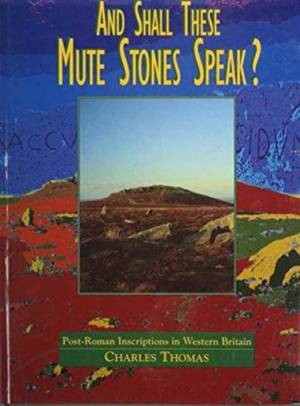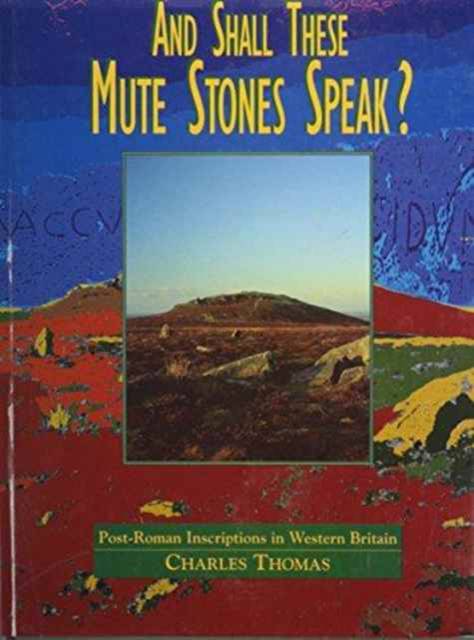
- Retrait gratuit dans votre magasin Club
- 7.000.000 titres dans notre catalogue
- Payer en toute sécurité
- Toujours un magasin près de chez vous
- Retrait gratuit dans votre magasin Club
- 7.000.0000 titres dans notre catalogue
- Payer en toute sécurité
- Toujours un magasin près de chez vous
And Shall These Mute Stones Speak?
Post-Roman Inscriptions in Western Britain
Charles Thomas
Livre relié | Anglais
69,45 €
+ 138 points
Description
Stone inscriptions are the most important written source for 5th-7th century western-British history. Against a background for Old World prehistory and the classical civilizations, this book focuses on the inscribed memorial stones of Demetia (south-west Wales, modern-day Dyfed) and Dumnonia (Devon, Cornwall and part of Somerset). The author looks at cultural change after AD 400 by analyzing the evidence or messages left on memorial stones. The invention of the ogam script in Ireland and its use, with implications for both paganism and Christianity, on such stones is examined. A group of chapters is devoted to a praticular reconstruction of events in south-west Wales between AD 400 and 600 - the establishment of an Irish-decended kingdom of Dementia. The author demonstrates that the Dementians adopted first Latinity (use of Roman names, ets) and only then Christinity, influenced by sub-Roman native kingdoms to the east. The author then traces a remarkable venture to the interior - the foundation of a small Dementian kingdom in the upper Usk valley, and examines documentary evidence for the first settler-king - Brychan - and, as monk and saint, his connection with Lundy Island (in the Bristol Channel) and north Devon. Evidence for a post-Roman native kingdom in Cornwall, Devon and part of Somerset is next considered, as is minor Irish settlement in west Cornwall around the year 400, and an isolated introduction of Christianity from 5th-century Gaul. Inscribed stones show that the conversion of Dumnonia to Christianity - though field-work has revealed that, far from being a Land of Saints, the deep south-west did not become Christian until well into the 6th century.
Spécifications
Parties prenantes
- Auteur(s) :
- Editeur:
Contenu
- Nombre de pages :
- 353
- Langue:
- Anglais
Caractéristiques
- EAN:
- 9780708311608
- Date de parution :
- 26-05-94
- Format:
- Livre relié
- Format numérique:
- Genaaid
- Dimensions :
- 189 mm x 246 mm
- Poids :
- 1272 g

Les avis
Nous publions uniquement les avis qui respectent les conditions requises. Consultez nos conditions pour les avis.






